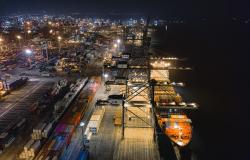
Emerging powers, such as China and India, have used claims of developing world leadership and South–South solidarity to strengthen their bargaining position in WTO negotiations. Yet analysis of the growing battle over special and differential treatment (SDT) suggests that such claims are increasingly tenuous. The question of how emerging economic powers should be classified and treated under global trade rules has become an acute source of conflict in the trade regime. The emerging powers insist on access to SDT as an unconditional right of developing countries. But in a debate dominated by the emerging and established powers, the interests of most developing countries have been largely overlooked. Drawing on the cases of agriculture and fisheries – two areas of international trade of particular importance to the developing world – I show that extending SDT to the emerging powers is increasingly problematic for global development. In these areas, many emerging economies are now among the world's largest subsidizers, and the harmful effects of their policies are felt most keenly by other developing countries. Granting SDT to exempt emerging subsidizers from WTO disciplines would therefore undermine efforts to use global trade rules to promote global development, as well as to protect the environment.
Policy Implications
- Efforts by emerging economic powers, such as China and India, to claim special and differential treatment (SDT) in WTO negotiations are increasingly problematic due to the effects of their trade policies on the rest of the developing world. In agriculture and fisheries, for instance, emerging economies are now among the world's largest subsidizers, and the harmful impacts of their subsidies are felt most keenly by other developing countries.
- While the emerging powers frequently claim to be acting as champions of the developing world in WTO negotiations, their insistence on a blanket right to SDT for all developing countries is actually hindering efforts to pro-mote global development.
- Emerging powers must take greater responsibility for the effects of their trade policies on the rest of the Global South, including being willing to accept disciplines in areas where their trade policies have negative spillover effects for other developing countries.
- Reducing harmful agricultural and fisheries subsidies is critically important for global development, and should be an urgent priority of the WTO. But to be meaningful and effective, new disciplines must encompass all major subsidizers, including emerging economies.
Photo by Tom Fisk